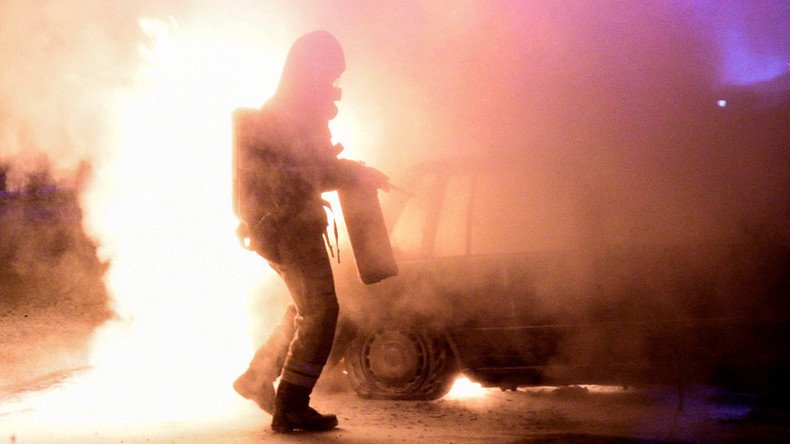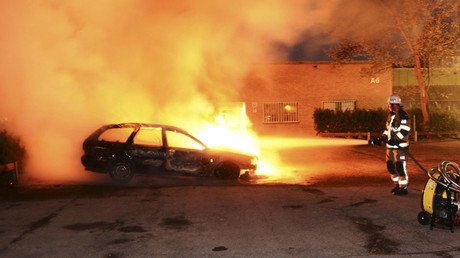Swedish police lose control amid refugee crisis as number of 'no-go zones' rises to 55

The inflow of asylum seekers in Sweden, a country with one of the most liberal laws towards refugees, is putting an increasing strain on the country's police. There are now reportedly 55 areas in the country, where the law is not fully upheld.
Dubbed “no-go zones” in some media reports, there are now 55 areas in Swedish cities, where the police have significant problems in tackling crime. They are divided into three categories depending on how significant the risk to officers working there is.
The number has risen from 50 in February, when the police last gave a comprehensive report on the issue, and last week, when the law enforcement agency gave an update. According to media reports, the service is facing a major crisis of self-confidence, with as many as three officers on average asking to resign on a daily basis. Internal polls say four officers out of five have been considering a change of profession lately.
“We have a major crisis. Many colleagues are choosing to quit,” police officer Peter Larsson told the Norwegian broadcaster NRK. “A drastically worsened working environment means many colleagues are now looking for other work.”
If officers go into a no-go zone, they risk being verbally attacked or pelted with stones. Patrol cars may be set ablaze or stolen.
Crime rates in the blacklisted areas are on the rise, the police report said. The offenses range from vandalism to drug crimes to sex assaults and gun violence.
One particular example is Malmo, Sweden's third-largest city, where more than 70 cars were set on fire by arsonists over several days. The police managed to arrest only one suspect while investigating those attacks.
Ironically, after the Hungarian government used the existence of no-go zones in Europe to promote its cause for an upcoming referendum on EU quotas, the Swedish embassy rebuked it saying that no such areas existed in their country.
"It is important to us that accurate information about Sweden is given to the citizens of Hungary. The embassy has therefore had reason to object sharply to a map of Europe with red markings in a handful of member states, including Sweden, in which the Hungarian government claims that so-called 'no-go zones' exist, where police and the state have no control over citizens' safety," Anna Boda, the Deputy Head of the Swedish diplomatic mission in Budapest told The Local.
“No-go zone” is a loaded term with no clear definition and caused division earlier amid the ongoing refugee crisis in Europe. Last year Paris wanted to sue Fox New for a report, which said no-go zones existed in the French capital.














